published: 4 /
7 /
2012
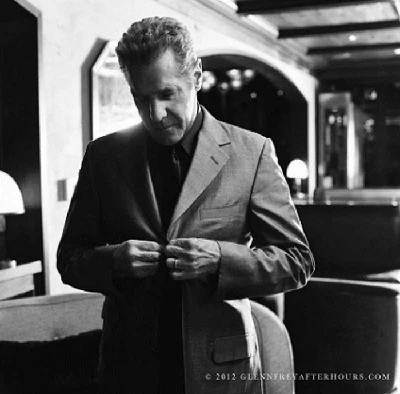
Eagles co-founder Glenn Frey speaks to John Clarkson abou his first solo album in twenty years, 'After Hours', a collection of covers of classic songs, and 'The History of the Eagles', a forthcoming two DVD Eagles documentary
Article
Glenn Frey is one of the co-founders of the stadium country rock act the Eagles, which he first formed with Don Henley, its only other original member, in Los Angeles in 1971.
The Eagles had international chart-topping albums with ‘Desperado’ (1973), ‘On the Border’ (1974), ‘One of These Nights’ (1975) ‘Hotel California’ (1976) and ‘The Long Run’ (1979), and since reforming in 1994 after breaking up acrimoniously in 1980 has gone on to meet with further success with albums such as ‘Hell Freezes Over’ (1994) and ‘Long Road Out of Eden’(2008).
Frey is also a solo artist, and has released four previous solo albums, ‘No Fun Aloud’ (1982), ‘The Allnighter’ (1984), ‘Soul Searchin’(1988) and ‘Strange Weather’ (1992). His latest and first solo album in twenty years, ‘After Hours’, Is a collection of covers of classic songs from the 1940s onwards, and, based around the piano, includes songs originally written and performed by Tony Bennett, Nat King Cole, Dinah Washington, Burt Bacharach, the Beach Boys and Randy Newman.
Pennyblackmusic spoke to Glenn Frey during a week of promotional activities in the UK about ‘After Hours’.
PB: Other mainstream artists,such as Paul McCartney with ‘Kisses in the Bottom’ and Rod Stewart with ‘The Great American Songbook’, have done something similar to you in recent years by covering songs from the 1940s and 1950s. Why do you think that you have all decided to release these albums now?
GF: I can’t speak for the other guys, but in my case I really love this music and this era. Since I became a songwriter I have developed an insider’s appreciation of how hard it is to write a great song. There are so many great songs from that era. It wasn’t until I left home and went out to California and started writing songs for myself that I started to realise how great the music was from that time was and before Elvis (Laughs).
I am also very lucky in my parents are still alive. My dad is 91 now and my mother is 87. I wanted to have this record and finish it when they are still around. It is a tribute as well to the music from my parents’ era.
PB: You didn’t, however, just confine yourself to music from the 40s and 50s with ‘After Hours’.
GF: No, I started moving up to the 60s, and so a few of my choices, the Burt Bacharach song ‘The Look of Love’, ‘Caroline No’ by Brain Wilson, and the Randy Newman song ‘Same Girl’, are from that time. I really made a piano and voice record. We decided that the songs that we chose all had to be compatible with piano as the central instrument.
PB: You’re known as primarily as a guitarist rather than a pianist. When did you first start playing the piano?
GF: I didn’t actually play the piano on ‘After Hours’. Michael Thompson, one of the keyboard players in the Eagles, who is a brilliant player, was the pianist on ‘After Hours’. I played from the time that I was five until I was twelve, and then a few years after the Beatles happened and so I switched and started playing guitar. Then when I got out to California and in the first year of the Eagles I started playing piano again. I went back to it and started plinking away again.
Then I started writing songs on the piano as well. ‘Desperado’, ‘One of Those Nights, ‘Take It to the Limit’ and ‘I Can’t Tell you Why’ were all written on the piano. The piano has been a big part of my life.
PB: It is not, however, a straight covers album, because the final track and title song is one of your own song. Why did you decide to add that?
GF: The song, ‘After Hours’, I originally wrote with Jack Tempchin for an album that I did called ‘The Allnighter’. For some reason the song didn’t make onto the record. Jack is a long-time friend of both myself and the Eagles. He wrote ‘Peaceful Easy Feeling’ for the Eagles, and he and I have written a lot of songs together throughout my solo career.
I called Jack up and said, “Do you want to come up and write a standard? I am doing this record,” and explained to him what I was doing. And he said, “Maybe we already did,” and I said. “What do you mean?” and he reminded me about ‘After Hours’” Like a knucklehead I had forgotten that we had written this song together, and so I went back and started playing it again, and so that is how it got onto this record.
PB: There was obviously a lot of choice in the songs that you could have chosen for this album. Was there a lot material which you tried out for this album, considered and decided wasn’t appropriate?
GF: No, not too much. We started out in a room with just a piano. I co-produced the album with Richard F.W. Davis, who played bass on the album, and Michael Thompson. We put together a list at the beginning of possible songs that we might think about recording and we would sing them and find a key, get a lyric sheet and say, “What do you think that one?” If it was a good match and matched the sound of my voice, if it was complementary and it looked as if I could sell the song, then we would go forward.
I only recorded one song that we didn’t use. I wanted to do ‘Rainy Night in Georgia’, but I couldn’t find the right register or key to do that one, and then there were a couple of other Dinah Washington songs that I wanted to record. We already had two of her songs on the record, and I couldn’t, however, put four on one record, so I will probably have to make one more record like this, so I can get to some stuff that I didn’t get to first time around.
PB: It has taken two and a half years to make ‘After Hours’. Why has it taken so long to record this album?
GF: It wasn’t two and a half years every day. The two guys that I worked with both play with the Eagles, and we would tour for a couple of weeks, and then every time we got off the road and back to L.A. we would go in and work on this record. It was like doing a jigsaw puzzle. We would go in and we would work on it for a while, and step away from it and come back to it, so it was done like that over time.
I enjoyed making this record this way. Distance gives clarity to me. To walk away and to come back to it and to say “We were right about this” or “Maybe we should rethink about what we are doing with the bridge on this record” really enhanced it. The good stuff was still good weeks later.
PB: Were there any other criteria that you used when you decided which songs were going to go on this album?
GF: Other than being a song that could work with piano, and that was compatible with my voice, I wanted this record to be romantic. I wanted it to have a lot of love songs on it. The only up tempo song on it is ‘Route 66’, but it still a love song because the guy loves to drive (Laughs).He is in love with his car rather than a woman, but even that song is a little bit on the cool side. It is not over the top. I wanted this record to have an atmosphere that was concurrent throughout all the songs, and I think we have got that.
PB: The songs on this album remain very true to the original spirit of the songs. Was that what you were aiming for?
GF: Yes. If someone was going to take a song of mine and change the melody I would go, “Well, why did you do that? The melody I wrote was the best melody for the song” (Laughs), so one of the first things that entered my mind was “Don’t mess around with this stuff. It is great the way it is.”
PB: You said that you wanted to do a second album like this. What would you put on that? Do you know yet?
GF: Well, I would put something on it by Peggy Lee. I would put something on it by Louis Armstrong, and of course there those Dinah Washington songs that I would absolutely love to do.
PB: You are balancing out touring and promoting this album with your commitment to the Eagles. You are working on a documentary at the moment with them,.
GF: That is correct. We have a two DVD documentary, ‘The History of the Eagles’, that is going to be coming out either just before Christmas after Christmas.
It is a chronological history of the group. It is in two instalments, the first being the Eagles from 1970 until 1980 and then the second part being from 1994 to the present. We have hired a very talented Academy Award winning director, a guy named Alex Gibney, to make it for us.
We have culled a lot of old footage and performances from the 1970s. It is going to be an interesting project because I don’t think people know a lot about the Eagles, which has always been fine with me. We have just left the door a crack slightly, but we are going to open the door a little bit more, so that people can see what we were going through and thinking when we were making the records in the 70s, and also the change in who we are after we put the band back together from 1994 on. I think that it is going to be a very good, entertaining and informative project.
PB: Why have you decided to be more open now?
GF: It is later in the game (Laughs), and we all think that is a good time, not that we are planning to put an end to any of the Eagles’ activities. We can’t say if that is going to happen or not. We don’t plan on that now. We just do things one year at a time.
PB: What else have you got planned with the Eagles for the immediate future?
GF: We might record some music to go into the DVD package, maybe a handful of new songs or old songs, and then when this DVD comes out we might consider doing some shows next year.
This year is a quiet year for the Eagles. I have got ‘After Hours’ coming out. Joe Walsh has a new record, ‘Analog Man’, which Jeff Lynne produced coming out. Don Henley has also been working on a country record.
We did, however, go to South Africa earlier this year, and we also played a show in Dubai. We try to go some place every year that we haven’t been. We have been to Iceland, China and South Korea as well in recent years. We are trying to find some other opportunity as well, maybe South America, or some other place where we haven’t been before.
PB: In the meantime what are you going to be doing with ‘After Hours’?
GF: I I have already played some shows in the States to promote it, and I am hoping to come back to Britain in the Fall and to play some shows here. That would be great.
PB: Thank you
Band Links:-
https://www.facebook.com/GlennFreyOffi
Picture Gallery:-
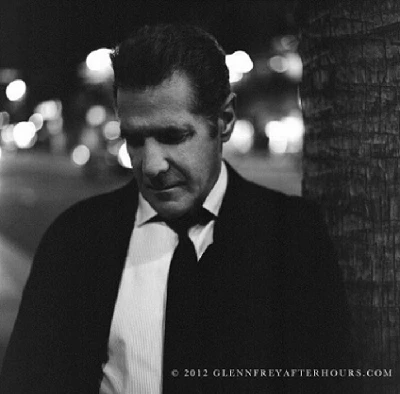
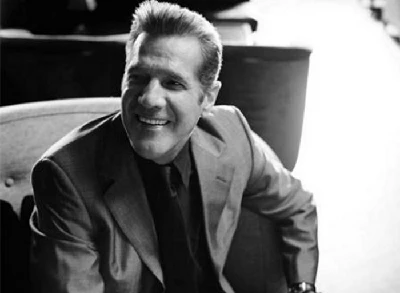
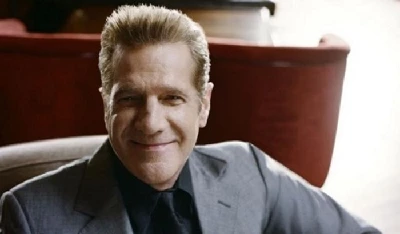
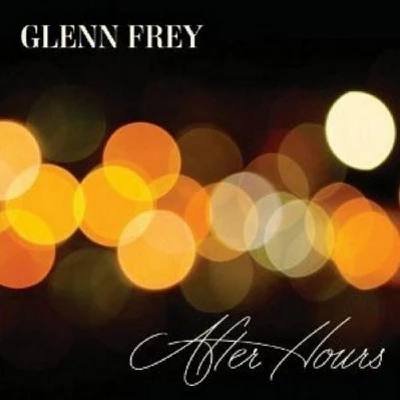
Visitor Comments:-
|
|
570 Posted By: Myshkin, London on 19 Jul 2012 |
The Eagles??? Seriously, the Eagles??? Well, there's no accounting for taste, eh? Admittedly, an interesting piece and informative and Glenn Frey comes across as a guy you'd like to share a beer or two with. But, sorry, the Eagles??? Oh gawd.
|